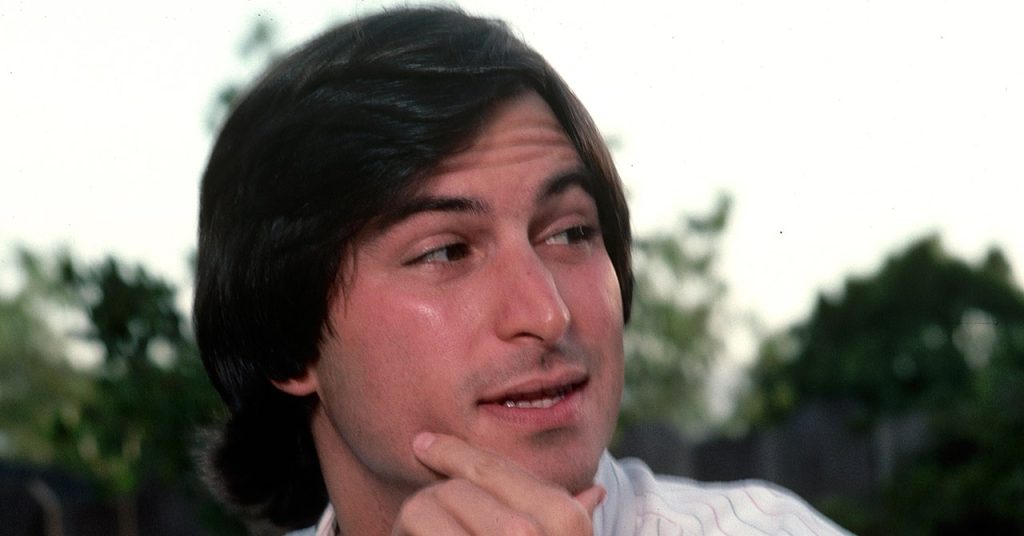### Steve Jobs’ Vision for the Future of Computers
#### A Nervous Start
Steve Jobs, at 28 years old, appeared slightly anxious as he began his speech to a group of designers in Aspen, Colorado, in 1983. Adjusting his bow tie and eventually discarding his suit jacket, Jobs was about to ask for their help in enhancing the design of upcoming personal computers. But first, he had a bold prediction to share.
#### The Emergence of a New Generation
Jobs asked the audience, “How many of you are 36 years … older than 36?” He pointed out that the computer was that old. Even the younger attendees, including himself, were part of the “precomputer” television generation. He declared that a new generation was emerging, one where computers would become the primary medium of communication.
“In their lifetimes, the computer will be the predominant medium of communication.”
#### A Bold Prediction
At the time, very few in the audience owned or had even seen a personal computer. Jobs confidently told them that soon, computers would be indispensable and deeply integrated into their lives.
### The Drive Behind the Innovation
#### The Unique Moment
In a video from the speech, Jobs explained why the emerging digital technology era drove him to obsessively build new machines, even at the cost of personal relationships.
“Well, it’s like computers and society are out on a first date in this decade, and for some crazy reason we’re just in the right place at the right time to make that romance blossom. We can make them great, we can make a great product that people can easily use. They’ll have great experiences. And if we don’t do it, IBM’s going to take over … [We’re] the only thing standing between IBM and a monopoly of the entire computer business. If having really great products—if having much better products isn’t enough to compete with them—then they’ll have the whole thing. They’ll be the greatest monopoly of all time. It’d be like owning every oil company and every car company in 1920. A lot of people would say, ‘Well, yeah … that’s a shame but there’s a woman who’s important to me, and I have to pay attention to that.’ It gets back to what you think is important, What do you do when you wake up every morning? And to me, for now, I just look at this whole experience as like boot camp. Great basic training. And for what I don’t know. Also, I look at most of the people I get to work with as artists. I look at myself as an artist if anything.”
#### The Artist’s Perspective
When asked if he saw himself as an artist, Jobs responded:
“Sort of trapeze artist.”
When further questioned about whether he worked with or without a safety net, he simply said:
“Without.”

### Ask Me One Thing
#### The Impact of AI on Media Revenue
Rick asks, “Will the content licensing deals media are doing to fuel Google’s AI offset the loss in ad revenue from Google Overviews?”
Thanks for the question, Rick. You specifically mention Google, which now presents the [Google](https://www.google.com) with OpenAI, defends such deals. He even provided a cheerleading this week. His deal, Thompson says, is not a suicide pact, because the content-licensing is limited to only LLMs trained during the period of the contract. Speaking generally and not to the specific Atlantic deal, though, I’m not sure that such a strategy protects media outlets. Even if these agreements last only a few years, during that time the business models might change so much it would be impossible to return to a world before people got all their information from chatbots.
#### The Writers’ Dilemma
There’s something else to think about here. It’s media corporations that make these deals with the AI powers. But the writers that produce the content aren’t getting any of the money, even though it’s their work that gets sucked up into the giant corpus. While the terms of employment might legally allow big publishers to resell the work, in almost all cases, this reuse wasn’t considered when people took their jobs. What if a columnist wrote with a distinctive style for a newspaper for years? When the paper licenses content, that scribe’s very personality can be replicated in the licensee’s LLM—and be put to use even after the columnist goes to another venue or starts their own Substack.
#### The Organic Threat
Just as the internet presented an organic threat to journalism’s business model, so does AI. I’m skeptical that licensing content to tech companies will solve that problem.
You can submit questions to ” with the Atlantic Ocean.
” for the right to deepfake.
WIRED “ today.

2 Comments
It’s incredible how cycles of innovation keep propelling us into the next era!
And yet, here we are, still waiting for flying cars!